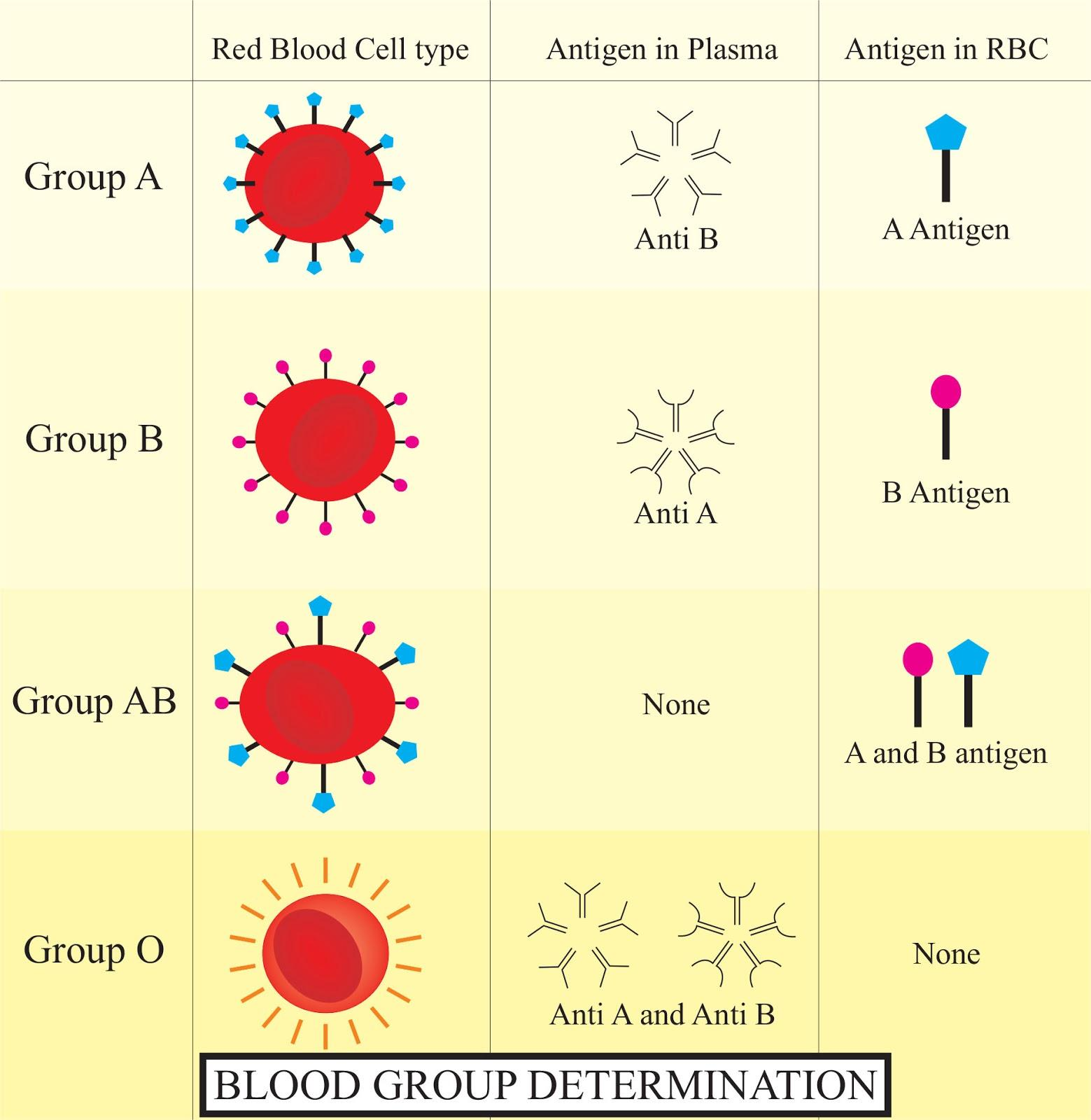
Blood of AB group cannot be given to B group patient because
(a)Patient has B antigens
(b)Patient lacks B antigens
(c)Patient lacks Anti-B and Anti-A antigens
(d)Patient has Anti-A antibodies
Answer
571.8k+ views
Hint: The presence and absence of antibodies determine the blood group and inherited antigenic substances that are present on the surface of red blood cells. The antigens presented may be proteins, carbohydrates, glycoproteins, and glycolipids which depend upon the blood group system.
Complete answer:
The blood of the AB group cannot be given to the B group patients because the patient lacks Anti-B and Anti-A antigens. Individuals having blood group AB contain both Antigen A and Antigen B on RBCs. It has no antibodies in the plasma and the individuals consist of B blood group Antigen B on RBC and Anti A antibodies in the plasma. Anti A antibodies attack the blood cells of the AB blood group in an individual as it consists of Antigen A on their RBC which will destroy them.
Additional Information: Antigens are the substances in the immune system that respond and the antigen gets encountered by the immune system which are not present in the body’s cells. It attacks against antigens. The blood group antigens are either sugars or proteins. They are attached to various components in the red blood cell membrane. Antigens are controlled by a single gene in a blood group system. The red cell antigens do not fit into a blood group as they are sorted into two series. They are rare having a frequency of less than 1% and they are placed in the 700 series and are common which is a frequency greater than 90% and are placed in the 901 series.
So, the correct answer is 'Patient lacks Anti-B and Anti-A antigens'.

Note: The second most frequently occurring blood type is the A+ blood group which is 34% of humans. Blood transfusions save 4.5 million lives every year and about five people in one in need of blood. Blood has no substitute and it makes 7% of your body weight.
Complete answer:
The blood of the AB group cannot be given to the B group patients because the patient lacks Anti-B and Anti-A antigens. Individuals having blood group AB contain both Antigen A and Antigen B on RBCs. It has no antibodies in the plasma and the individuals consist of B blood group Antigen B on RBC and Anti A antibodies in the plasma. Anti A antibodies attack the blood cells of the AB blood group in an individual as it consists of Antigen A on their RBC which will destroy them.
Additional Information: Antigens are the substances in the immune system that respond and the antigen gets encountered by the immune system which are not present in the body’s cells. It attacks against antigens. The blood group antigens are either sugars or proteins. They are attached to various components in the red blood cell membrane. Antigens are controlled by a single gene in a blood group system. The red cell antigens do not fit into a blood group as they are sorted into two series. They are rare having a frequency of less than 1% and they are placed in the 700 series and are common which is a frequency greater than 90% and are placed in the 901 series.
So, the correct answer is 'Patient lacks Anti-B and Anti-A antigens'.

Note: The second most frequently occurring blood type is the A+ blood group which is 34% of humans. Blood transfusions save 4.5 million lives every year and about five people in one in need of blood. Blood has no substitute and it makes 7% of your body weight.
Recently Updated Pages
Master Class 11 Computer Science: Engaging Questions & Answers for Success

Master Class 11 Business Studies: Engaging Questions & Answers for Success

Master Class 11 Economics: Engaging Questions & Answers for Success

Master Class 11 English: Engaging Questions & Answers for Success

Master Class 11 Maths: Engaging Questions & Answers for Success

Master Class 11 Biology: Engaging Questions & Answers for Success

Trending doubts
One Metric ton is equal to kg A 10000 B 1000 C 100 class 11 physics CBSE

There are 720 permutations of the digits 1 2 3 4 5 class 11 maths CBSE

Discuss the various forms of bacteria class 11 biology CBSE

Draw a diagram of a plant cell and label at least eight class 11 biology CBSE

State the laws of reflection of light

Explain zero factorial class 11 maths CBSE




